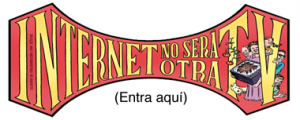Uncategorized
My thesis defense & Viva: September 20, 2010 – European University Institute (Florence, Italy)
Hello! Hola! Ciao!
After four years of intense action-research work, I am glad to announce that I am defending my Doctoral dissertation – Title “Governance of online creation communities: Provision of infrastructure for the building of digital commons” the 20th of September 2010. The discussion on the dissertation will start at 18h (at Capella, Villa Schifanoia, European University Institute, Florence); at 20h a collective viva “chin-chin” will be celebrated.
Here below there is a short abstract of the dissertation and I will adapt this website in order to present the research results and the (large amount! and hopefully useful) materials generated.
Happy if you can come and join the discussion or/and just come to the “chin-chin” afterwords.
Thank you, buff! Mayo
Short abstract of the dissertation:
This doctoral research is framed by the notion of a transition in which distinct commons organizational forms are gaining in importance at a time when the institutional principles of the nation state are in a state of profound crisis, and those of the private market are undergoing dramatic change. Additionally, the transformation of industrial society into a knowledge-based one is raising the importance of knowledge management, regulation and creation.
This doctoral research addresses collective action for knowledge-making in the digital era from a double perspective of organizational and political conflict through the case of global online creation communities. From the organizational perspective, it provides an empirically grounded description of the organizational characteristics of emerging collective action. The research challenges previous literature by questioning the neutrality of infrastructure for collective action and demonstrating that infrastructure governance shapes collective action. Importantly, the research provides an empirical explanation of the organizational strategies most likely to succeed in creating large-scale collective action in terms of the size of participation and complexity of collaboration. From the political conflict perspective, this research maps the diverse models of governance of knowledge-making processes, addresses how these are embedded in each model of governance, and suggests a set of dimensions of democratic quality adapted to these forms. Importantly, it provides an empirically grounded characterization of two conflicting logics present in the conditions for collective action in the digital era: a commons versus a corporate logic of collective action. Additionally, the research sheds lights on the emerging free culture and access to knowledge movement as a sign of this conflict.
In hypothesizing that the emerging forms of collective action are able to increase in terms of both participation and complexity while maintaining democratic principles, this research challenges Olson’s assertion that formal organizations tend to overcome collective action dilemmas more easily, and challenges the classical statements of Weber and Michels that as organizations grow in size and complexity, they tend to create bureaucratic forms and oligarchies. This research concludes that online creation communities are able to increase in complexity while maintaining democratic principles. Additionally, in the light of this research, the emerging collective action forms are better characterized as hybrid ecosystems which succeed by networking and combining several components, each with different degrees of formalization and organizational and democratic logics.
Call for papers – Panel: Digital politics: Collective action born in and from the Internet
CALL FOR PAPERS PANEL AT THE NEXT ECPR – Panel – section Internet & Politics – ECPR General Conference in Reykjavik in 2011
Deadline first round of call for papers: 30st August 2010
Send papers proposal to: mayo.fuster(at)eui.eu
Panel abstract: So far, political science research has focused on the use of the Internet by collective political actors that had their main operational base in the offline realm. First studies on the Internet and politics mainly concentrated mostly on well-established and traditional actors such public administration and political parties. Then the cope of research widened to include interest groups, NGOs and social movements looking at the impact of the Internet and the type of Internet use carried out by those groups. In particular, given the growing importance of political campaigns and other forms of collective action that are launched and carried out by networks of political actors, that mainly, if not completely operate and mobilize for their issues online, the debate on the Internet and politics could benefit further from considering actors who mainly operation with an online base. Interestingly, the emergence of collective action in online environments apparently follows new forms of “networked” forms of action and collaboration that are said to be different from political actors with a mainly offline base. The panel “Digital politics” aims to iniciate a discussion on the main organizational and democratic logic of the collective action born in and from the Internet addressing questions such as: What are the main characteristics of participation in online base collective action? How are boundaries drawn between the individual and the collective in such forms? How can we deal with the dialectics of individualization on one hand and the effects of de-personalization on the other hand that are inscribed in online spaces? How is the online space governed and how does its architecture structure online interaction? Finally, which methods are best suited to analyze the practices and dynamics of collective action online adequately?
Co-chairs: Mayo Fuster Morell (European University Institute) and Johanna Niesyto (University of Siegen)
Discussant: Sigrid Baringhorst (University of Siegen)
